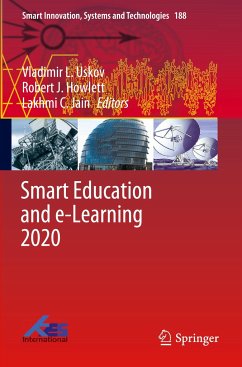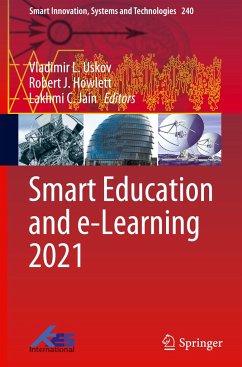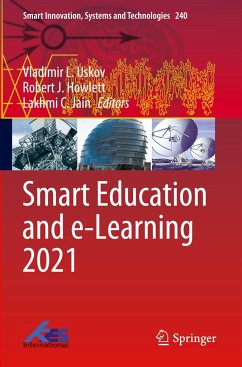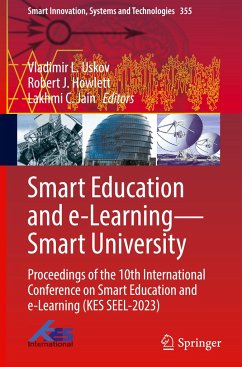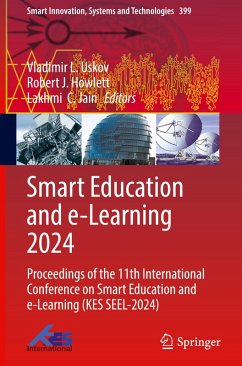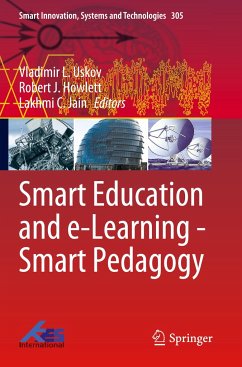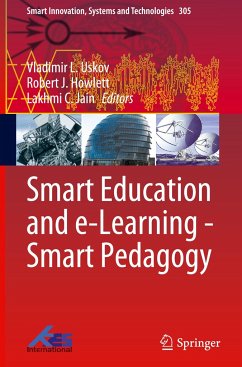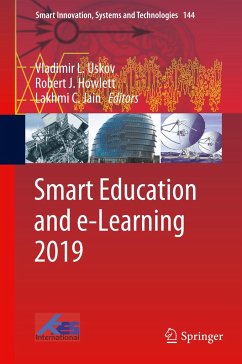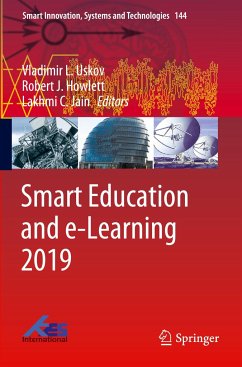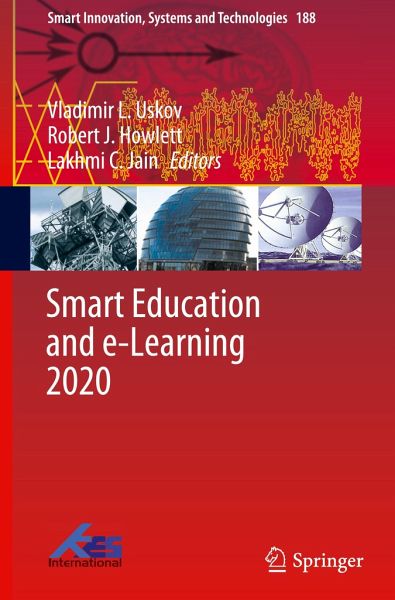
Smart Education and e-Learning 2020

PAYBACK Punkte
107 °P sammeln!
This book contains the contributions presented at the 7th international KES conference on Smart Education and e-Learning (KES SEEL-2020), which being held as a virtual conference on June 17-19, 2020. It contains fifty three high quality peer-reviewed papers that are grouped into several interconnected parts: Part 1 - Smart Education, Part 2 - Smart e-Learning, Part 3 - Smart Pedagogy, Part 4 - Smart Education: Systems and Technology, Part 5 - Smart Education: Case Studies and Research, Part 6 - Smart University Development: Organizational and Managerial Issues, Part 7 - Smart Education and Sma...
This book contains the contributions presented at the 7th international KES conference on Smart Education and e-Learning (KES SEEL-2020), which being held as a virtual conference on June 17-19, 2020. It contains fifty three high quality peer-reviewed papers that are grouped into several interconnected parts: Part 1 - Smart Education, Part 2 - Smart e-Learning, Part 3 - Smart Pedagogy, Part 4 - Smart Education: Systems and Technology, Part 5 - Smart Education: Case Studies and Research, Part 6 - Smart University Development: Organizational and Managerial Issues, Part 7 - Smart Education and Smart Universities and their Impact on Students with Disabilities, Part 8 - Mathematical Models in Smart Education and e-Learning, and Part 9 - Models of Professional Practice in Higher Education.
Smart education and smart e-learning are emerging and rapidly growing areas with the potential to transform existing teaching strategies, learning environments, and educational activities and technology in the classroom. Smart education and smart e-learning focus on enabling instructors to develop new ways of achieving excellence in teaching in highly technological smart classrooms, and providing students with new opportunities to maximize their success and select the best options for their education, location and learning style, as well as the mode of content delivery. This book serves as a useful source of research data and valuable information on current research projects, best practices and case studies for faculty, scholars, Ph.D. students, administrators, and practitioners - all those who are interested in smart education and smart e-learning.
Smart education and smart e-learning are emerging and rapidly growing areas with the potential to transform existing teaching strategies, learning environments, and educational activities and technology in the classroom. Smart education and smart e-learning focus on enabling instructors to develop new ways of achieving excellence in teaching in highly technological smart classrooms, and providing students with new opportunities to maximize their success and select the best options for their education, location and learning style, as well as the mode of content delivery. This book serves as a useful source of research data and valuable information on current research projects, best practices and case studies for faculty, scholars, Ph.D. students, administrators, and practitioners - all those who are interested in smart education and smart e-learning.



